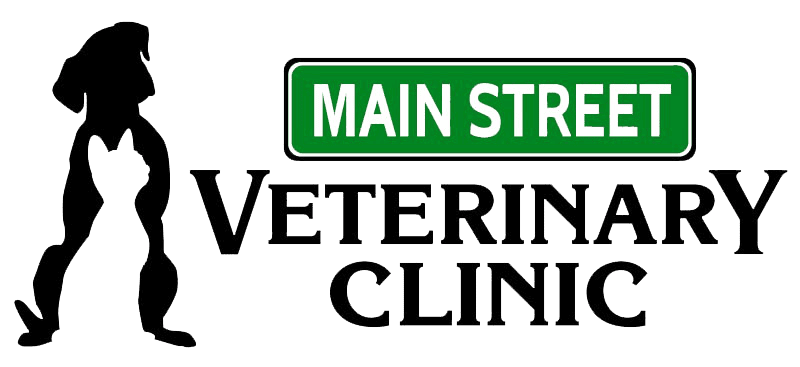Signs of Parvo in Puppies

Canine parvovirus, or the disease commonly known as “parvo,” is a highly contagious virus that can affect dogs. It is one of the more serious illnesses that a dog can get, and can make your pup extremely sick. Parvo causes severe gastrointestinal issues including vomiting, diarrhea, fever, lethargy, and more. While the virus is more commonly seen in puppies, unvaccinated dogs of all ages can be susceptible.
The good news is, parvo is preventable with the correct vaccinations and proper socialization! Since it is highly contagious and very easy to spread, it’s important that puppies get their parvovirus vaccination as a part of their core vaccines and keep away from other dogs until they are fully vaccinated.
The team at Main Street Veterinary Clinic cares about your canine companions and has put together this guide to educate dog parents on the dangers of parvo. Learn how to keep your pup safe from this disease by understanding how it is spread, and recognizing the signs and symptoms of the virus:
How Parvo is Spread
Parvo is spread between dogs through direct contact with other dogs, or through surfaces and items contaminated with the virus. This means that it’s best to keep puppies and unvaccinated dogs separated from other canines until they’ve finished their vaccination series. Since dogs are curious and messy creatures, they could also contract the virus after coming into contact with another dog’s infected feces (even trace amounts). The virus can also be spread indirectly among surfaces such as kennel areas, toys, collars and leashes, food and water bowls, and even from the hands or clothes of people who have handled an infected dog.
The Signs and Symptoms
Since parvo is an extremely serious illness, it is important to be on the lookout for its signs and symptoms. Contact your veterinarian immediately if your pet is experiencing any symptoms of parvovirus. Keep in mind that dogs may be contagious before they start to show symptoms, although symptoms typically appear between 3-7 days after they become infected.
The first sign of parvo for puppies is often lethargy, lack of appetite, and a fever. Canines will begin to suffer from vomiting and diarrhea as the virus progresses, and can experience dehydration and a high heart rate as a result.
Symptoms of parvo can include:
- Lethargy
- Weakness
- Lack of appetite
- High fever
- Vomiting
- Diarrhea
- Abdominal pain
- Bloating
- High heart rate
- Hypothermia (depending on severity of infection)
If a dog experiences persistent vomiting and diarrhea, they could very quickly become extremely dehydrated. Also, septic shock can take place when too much damage occurs to the intestines. Depending on the severity of the symptoms, parvo can turn deadly. Be sure to notify your veterinarian if you notice your puppy or adult dog is feeling under the weather or acting out-of-character. The early you catch the signs and get your dog to the vet, the better the survival rates are.
Unfortunately, even with the most aggressive treatment, dogs can still succumb to the illness since there is no specific drug designed to kill the parvo virus. Instead, treatment is intended to support the dog’s body systems until they can fight off the infection. On top of that, treatment can be very expensive. This makes preventing it even more important!
Prevention is Key
No matter the age, make sure your dog’s vaccinations are up-to-date. If they are not fully vaccinated, keep them isolated from other dogs to minimize risk of infection. Make sure all of the dogs in the household are vaccinated, and avoid places like dog parks and play groups until they are.
Last but not least, do not let your dog sniff, lick, or otherwise come into contact with fecal matter from other dogs. Help prevent the spread by picking up after your pet, and promptly dispose of their poo to limit the spread between other pets.
We’re Here to Help
Whether you’re adopting your first puppy, or you’re getting a new furry member of your family to join your pack, the team at Main Street Veterinary Clinic is here to help. Contact our team at 540-951-1002 to get your pet scheduled for regular wellness exams to keep them protected and safe from viruses, so they can lead a long and happy life.

